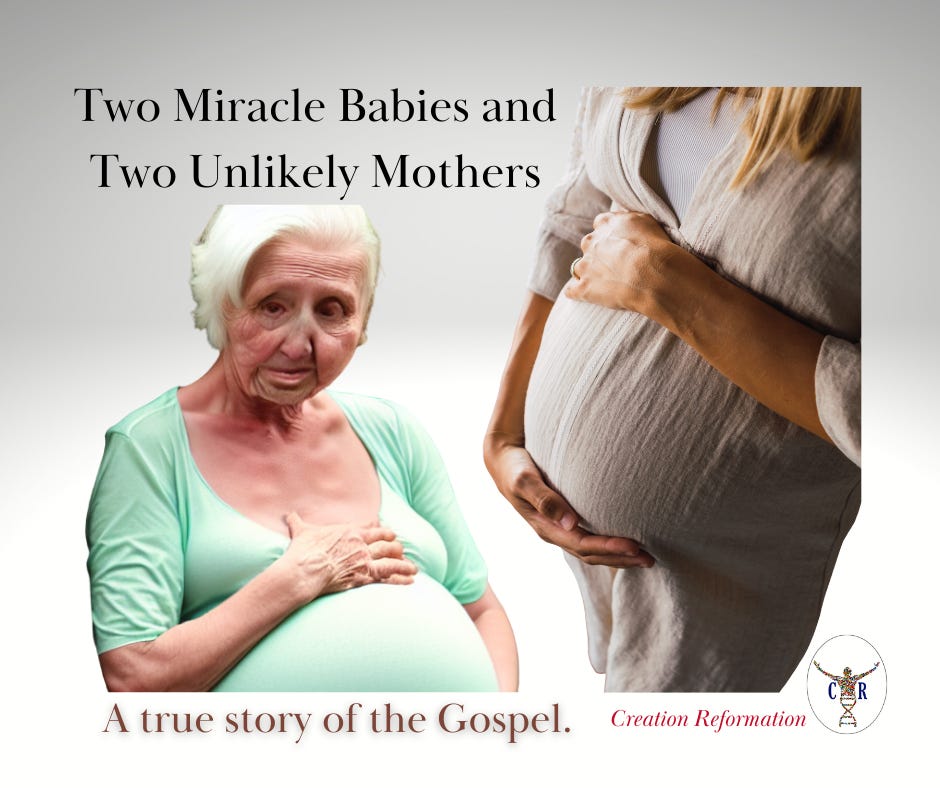If evolution is true, then there is no true Christmas story.
As Christians around the world enter the Christmas season it makes sense to consider the truth claims of the Gospel. If evolution is the true creation story for humankind, then the claims of the Gospel as they relate to Jesus' birth are certainly not truth claims.
How can a truth claim involving angels singing in the sky, a virgin birth, and most of all an Emmanuel, God with us in human form, be true in a naturalistic system in which evolution is the true creation story? Virtually every part of the beginning of the Gospel's pivotal point is nonsense, pure nonsense, if evolution is true.
Beyond the sheer impossibility of immaterial angels in a naturalistic cosmos, a pregnant virgin created by natural selection, and a man born human but also being God, the very idea that humans need a "savior" is ludicrous in an evolution-created world.
Humans need to be saved? From what? An evolution-created world knows no objective right and wrong. The rights and wrongs of evolved humans derive from might, either the might of one or the might of the majority. Regardless of the source of right and wrong, doing wrong in an evolution-created society implicates no divine being and requires no divine saving.
Thus, the Christian's Christmas story starts out on poor footing if evolution is the true creation story for humans. But this strange story gets even stranger. Its beginnings are established forever in the most unlikely of places: two unborn miracle babies and two most remarkably pregnant women.
We all know the story—whether believed or not—of the miraculous conception of Jesus in Mary's womb. But most people are less aware of another unlikely womb, with another miraculous baby inside: that of Elizabeth, mother to John the Baptist.
Elizabeth was a very old woman—some say she was in her 80's—when she became pregnant with John the Baptist. Mary, after being told she would carry the Son of God went to visit her relative, Elizabeth. And here the story takes a remarkable turn.
Do you know who on Earth was the first person to recognize Jesus as Lord? It was a baby in the womb! A fetus, later to become known as John the Baptist, leaped for joy in Elizabeth's womb at the sound of Mary's voice. A fetus! Not close to being out of the womb, but a fully human baby nonetheless, first responded to the presence of Jesus, also in a womb.
Fetus and fetus, one recognizing the other. Quite remarkable, indeed.
Do you know who was the second person on Earth to recognize Jesus as Lord? It was an 80+-year old woman carrying her own baby in her womb. Elizabeth said in a loud voice upon Mary's entrance: "Why am I so favored, that the mother of my Lord should come to me?"
Two miracle babies. Two unlikely expectant mothers. And the kings of the nations had no idea that another king was to be born.
The beauty of God's workings cannot be overstated. But the beauty of God's workings can be ignored. And they can be denied in favor of a belief system that makes God's workings seemingly impossible.
Seemingly impossible? Yes, if naturalism as a philosophy that undergirds the truth of evolutionary theory corresponds with true reality the entire Christmas story is not only untrue; it is not even possible.
Seemingly impossible? Yes, seemingly. Because our every sense and every reasoning faculty in our inner being assures us that naturalism does not correspond to reality. And we understand deep in our hearts and minds that evolution, whatever it can explain, cannot explain human beings, human nature, and the human experience.
There must be something more.
The something more quietly and almost imperceptibly exploded onto the scene in that dark manger in Bethlehem. And babes, women, and every opened heart since has leaped for joy.
Joy to the world! The true king has come.
(C) Copyright Creation Reformation




